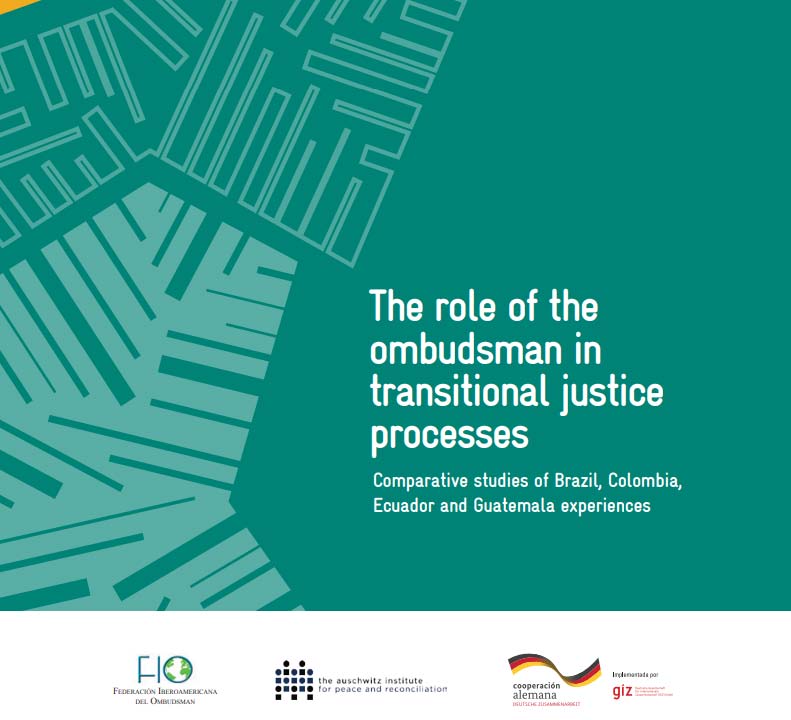After approximately 40 years of having created the first ombudsman institutions in Latin America, it is time to reflect on the role they play in the different processes and moments that Latin American countries are currently undergoing. Thanks to the efforts of Iberoamerican nations, the transition processes have been successfully completed and today the nations live in relative peace and with mostly consolidated democratic regimes.
This peaceful reality is also experienced through the application of different transitional justice instruments. Some are truth commissions in Argentina, Chile, Peru, El Salvador and Guatemala or reparations for victims, including compensation, rehabilitation and symbolic redress. Added to this, there have been institutional reforms of the police, the armed forces, the judiciary, the inception of ombudsmen offices and the construction of places of memory. The most recent was the one inaugurated in Lima, on December 17, 2015 as a token of memory, tolerance and social inclusion. However, as Latin American realities demonstrate, new challenges can always arise that require transitional justice instruments to achieve peaceful and lasting transformation of conflicts, to discover the truth about committed crimes, to identify those responsible and to restore the victims’ dignity.
This study systematically analyzes the actions taken by Ombudsman offices in the context of transitional justice processes in four Latin American countries: Brazil, Colombia, Ecuador, and Guatemala. The paper describes how ombudsman institutions promote judicial processes, support commissions of truth, contribute to the dissemination of their results, or monitor reparations to victims, among others. This joint effort is possible thanks to an innovative alliance between the FIO, the Auschwitz Institute and the German Cooperation agency through its PROFIO project, which accompanies the Ibero-American Ombudsmen Federation for strengthening institutional capacities in its members. This opportunity allows us to contribute to the protection of the human rights of vulnerable groups. We are happy to be able to join in this substantial contribution to building societies that are fair and respectful of human rights. Descargar publicación

